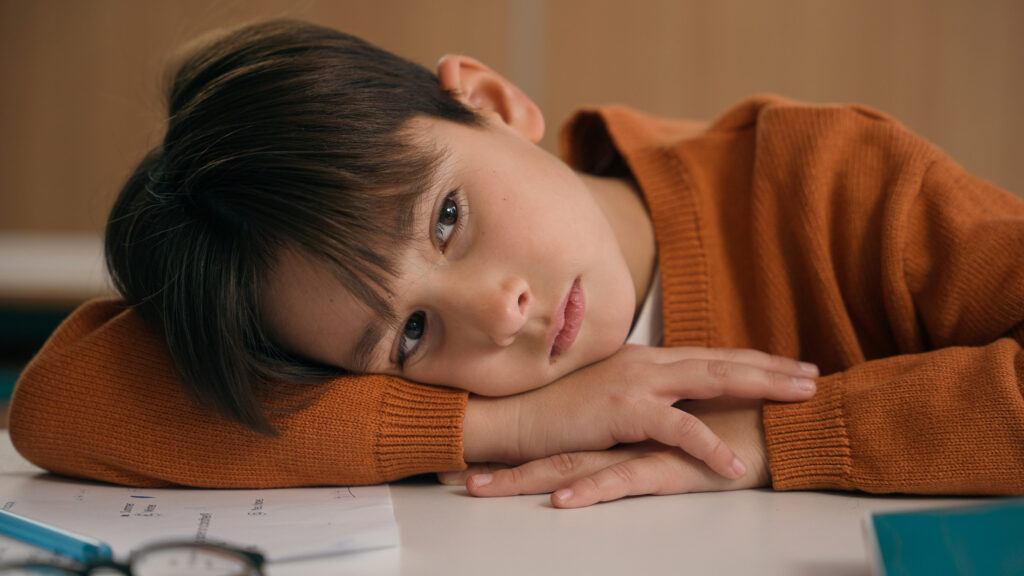Child mental health
Mental Health Care for Under- or Uninsured Pediatric Patients
“Evaluating and treating mental health problems in under- or uninsured pediatric patients often presents more challenges, but it is even more rewarding when you are able to provide life-changing mental health care,” explains Natalie Robiou, MD, a pediatric primary care provider at a Federally Qualified Health Center (FQHC) in Philadelphia, PA. The number of pediatric…
Read MoreFrom Screening Tools to Systems Change: Tips for Putting Your REACH Training Into Practice
When providers attend their first Patient-Centered Mental Health in Pediatric Primary Care (PPP) training with REACH, many leave feeling empowered and excited to implement their new knowledge. But having evidence-based tools is only the first step in supporting mental health for children and adolescents. We asked several PPP alumni—and one who is now a faculty…
Read MoreHow Social Media is Impacting Teens
The most important question that we can ask teens isn’t if they use social media, it’s how. Just last May, the Surgeon General’s advisory on social media use in youth exposed some shocking statistics: Among 13 to 17-year-olds, up to 95% use social media, with 35% saying they use social media “almost constantly.”
Read MoreTips for Managing Mental Health Disorders in Children with Autism
“It used to be that when a diagnosis of autism was given, no other mental health comorbidities could be recognized,” explains Ruth E.K. Stein, MD, a REACH faculty member and Professor of Pediatrics at Albert Einstein College of Medicine and the Children’s Hospital at Montefiore. “That changed in 2013 with the release of the DSM-5. For…
Read MoreHow Clinicians Can Partner with Schools to Support Pediatric Patients
“Clinicians who are aware of and know how to direct parents to obtain services for children within the school system can make an enormous difference for patients and families,” explains Dr. Mark Wolraich, MD, a REACH faculty member and retired professor of pediatrics at the University of Oklahoma Health Sciences Center. The challenge for clinicians…
Read MoreSpotting OCD in Pediatric Patients
“Even among skilled clinicians, misconceptions about obsessive-compulsive disorder or OCD can delay diagnosis and treatment,” explains Carla E. Marin, Ph.D., a licensed psychologist and Assistant Professor at Yale School of Medicine. With common sayings like “we’re all a little OCD” and representations of OCD that center on germs and handwashing, getting a clear picture of…
Read MoreADHD and Racial Disparities: What Clinicians Can Do
“When a parent of color raises concerns about their child’s behavior, clinicians should always stop to assess for underlying disorders,” explains child and adolescent psychiatrist Brittainy Erby, MD. “I see many children and adolescents of color who have been diagnosed with a behavior disorder, but they actually have untreated ADHD.” The research reinforces what Dr.…
Read MoreWhen Adolescent Patients Transition to College: The Provider’s Role
“Any transition is a time that our patients can trip and fall,” explains Tina Nicholson, MD, a family doctor specializing in children and youth mental health. The transition to college, especially if it involves moving away from home, is no exception. To understand how providers can help adolescents navigate this transition, we spoke with REACH…
Read MoreUntangling ADHD and Anxiety as Comorbidities
“ADHD and anxiety presenting together is very common in children and adolescents. But it can be difficult to discern which is the primary condition and which to treat first,” explains Kari Overstreet, DNP, APRN, CPNP-PC, PMHS, a pediatric nurse practitioner focused on child psychiatry and a Patient-Centered Mental Health in Pediatric Primary Care (PPP)…
Read MoreNavigating the ADHD stimulant medication shortage
“The ADHD stimulant medication shortage is affecting patients, families, pharmacists, and clinicians,” explains Andrew Adesman, MD, a developmental pediatrician specializing in ADHD.
Read More






